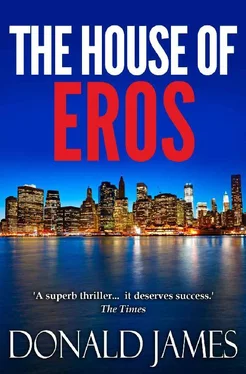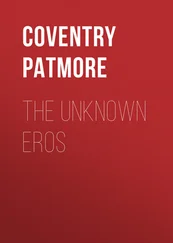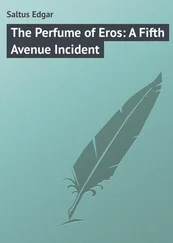‘If it saves you from ruining your life, if it saves you from a twenty-year jail sentence for murder,’ Max said. ‘ Yes .’
* * *
She ran because it seemed the only way to fill the other void inside her, ran to stop the uncontrollable tears and the pulse thundering in her temples. Ran through the wet, almost empty streets, across intersections, past night repairmen, urged on by flashes of bright neon. She had asked Max to get some more coffee and slipped from the hotel before he realised. She could hear his shouts echoing behind her now.
Swinging round a corner she saw a yellow cab cruising towards her and she waved her hands desperately. As it slowed beside her and she grabbed the handle of the still moving cab, the driver looked up into the wild blaze of her eyes, heard the man’s shouts and running footsteps reach the corner.
‘Oh, no lady.’ He was shaking his head in alarm.
But she had already thrown herself into the back seat. ‘Drive,’ she ordered. ‘Just drive.’
The cab pulled away past Max and swung back up West 44th Street.
In the back Nan Luc fought to control her breathing. She retched at the thought of what Max had said. In one stroke he had deprived her of everything that had kept her alive for the last year.
If Stevenson was not her father, then did she still have a right to a unique, personal revenge? Did it mean that the only course now was to bring Stevenson to justice, to a long wrangle in the courts, against clever, amoral lawyers? With the chance, the everpresent chance that he would finally, finally walk away free.
‘You want me to drive all night?’ the cab driver said. She gave him her Greenwich Village address.
Was it not possible that Max was mistaken? Of course it was. It was possible that her mother had met Peter Benning long after she had known Stevenson. Long after she had had Stevenson’s child.
As she ran up the steps to the house, as she let herself in and ran along the corridor, her mind was desperately clawing away the idea that Peter Benning was her father.
She slammed the door of the apartment and walked slowly, deliberately, into the living room. The words were thrumming in her head. Phone Edward. Immediately. She punched out the numbers and waited. Even with the time difference he would be in bed.
His voice answered after a few moments. ‘Nan,’ he said, gathering his wits, ‘what is it, is something wrong?’
She forced a glacial calm into her voice. ‘No,’ she said coolly, ‘nothing wrong. Just something I had to call you about right away. If Max Benning calls you, please on no account give him my address here. Give him no information. Nothing.’
‘Will you tell me why?’
‘Sometime soon. Not now.’
There was a long silence. ‘OK, Nan. No address, nothing. I’ve got it.’
When she had put down the phone she stood pouring herself a glass of wine, thinking of Edward, thinking of Max, thinking of her father. Wine spilled over the rim of the glass as the telephone rang.
She walked back into the living room. Edward. Who else at this time of the night. Not Max. He could not possibly know the number. She lifted the phone. Kim Hoang’s voice said: ‘Nan, I just got it on the wire service. Something dreadful’s happened. Something really dreadful.’
She was sick with guilt. Sick with the image of Louise lying murdered in the motel room. Sick with the idea that she might somehow have prevented her death. On the phone Kim Hoang had urged Nan Luc to go to the police. But that would mean revealing everything Louise had been desperate to hide. Now she owed Louise silence, if nothing else.
Through the night, half sleeping and dreaming in a chair, Nan Luc tried to tear the veil aside, to break through into the Saigon world of only twenty years ago. A wild world, Louise had said, a world of sex and drugs and ugliness and tens of thousands of abandoned children. Was it possible that Louise was telling the truth about the money? To Nan it seemed more likely that the story of the five thousand dollars and the forging of the birth certificate was something Stevenson had forced Louise to tell her.
Where, Nan asked herself, would her mother, Pham, a South Vietnamese Army nurse get five thousand dollars? To any Vietnamese who wasn’t involved in drugs or war profiteering or prostitution it would have been a gigantic sum.
She got up and walked back and forth through the length of the small apartment. Facing him, confronting him, was the only way. She was too Vietnamese to believe that a father could face his child without somehow revealing the truth. And then no police. No courts. No clever lawyers. He must never walk free.
As dawn etched the jagged outline of the rooftops opposite, she peeled off her clothes and fell naked across the bed. She lay there chasing an idea, a nagging thought through the corridors of memory. Stevenson had eluded her at the motel but something still drummed in her head. A connection which came from last night.
Something, through the curtain of drizzling rain, that had flashed through her mind at the moment the Mercedes pulled away on the ramp.
* * *
Mary Page Butler, dressed in a plaid skirt, a black Pringle cash-mere and a Bettina Hopman gold necklet, came down the stairs and turned left towards the drawing room. Through the hall windows she could see the low grey cloud which presaged snow. But beside the door she could also see her husband’s three leather suitcases ready for loading into his car for his weekend in the city.
Two days, two nights by herself. Two days more she could put off telling Fin she wasn’t going to resign from the fund. Worse, that she was voting for Cy at the Christmas Eve election. Would he guess? Fin, maybe no. But Sunny. And the other trustees.
Reaching for the door she heard voices in the drawing room. As if to match her thoughts, Fin’s voice, Sunny’s.
She pushed open the heavy panelled door. ‘Hi, Sunny,’ she said. ‘I thought it was you.’ She reached up and gave Sunny a careful kiss on the cheek. ‘Drinks already?’ she said, turning to Fin.
‘I’m leaving in a few minutes,’ Fin said. ‘If I’m to mix them, and who else, you’ll have to have them straightaway.’
‘This is a surprise,’ Mary dropped down on to the sofa, her eyes on Sunny.
‘Yes,’ Sunny said flatly.
‘I thought maybe you had come round to hitch a lift with Fin into New York.’
‘Looking like this?’ Sunny said, without a smile.
Mary shrugged. It was true, Sunny looked worn and stale, as if she had passed a bad night. And of course she would never go into the city dressed in jeans.
‘An early start to the day, but I always insist Saturdays don’t count,’ Fin Butler said, as he carried the two heavy tumblers, tinkling with ice, across to his wife and sister-in-law. ‘There,’ he handed a glass to Sunny, ‘I’m justly renowned for the gin and tonics I make. Just a touch of bitters added. The Prince adores them.’
‘Sunny knows,’ Mary said, taking her own glass. ‘In fact, Fin,’ she added, not unkindly, ‘ everybody knows.’
‘Ah,’ Butler threw his hands in the air. ‘Repeating himself again. Old age, Mary.’
‘You’re not old,’ she said, more sharply. ‘If you’re old, what does that make me?’
‘Five years younger,’ he said. ‘Just as you’ve always been. Now,’ he signalled he was changing the subject, ‘I’m going into the city today for lunch at my club. Probably stay overnight. We’ve got the Argentinians over on a non-playing visit.’
‘Best polo players in the world,’ Sunny said.
Fin Butler smiled easily. ‘Thank you, Sunny. Nearly repeated myself again, did I?’ Giving each woman a peck on the cheek, Fin Butler left them alone in the room.
Читать дальше












